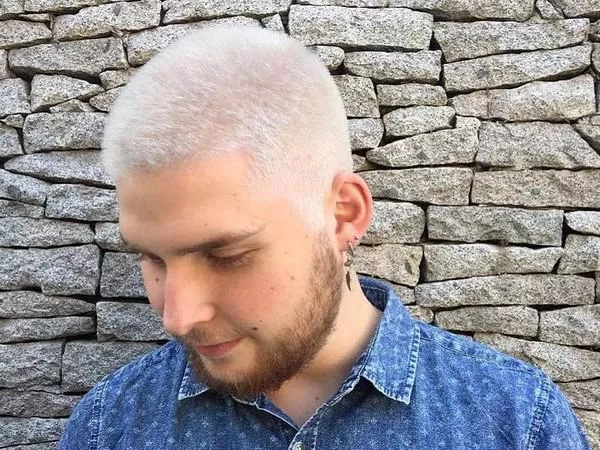They say hair is a man’s crowning glory, but for many, the battle against hair loss can be disheartening. Hair loss in men is a common concern that affects self-esteem and confidence. While genetics play a significant role, various other factors contribute to this condition. In this article, we delve into the multifaceted causes of hair loss in men and shed light on the scientific breakthroughs and treatments available.
I. Unraveling the Genetic Code:
1. The Influence of Androgenetic Alopecia
Genetic predisposition is the primary cause of male hair loss. Androgenetic alopecia, commonly known as male pattern baldness, is passed down through generations. This condition results from the interaction between hormones and specific genes, which affects hair follicles’ sensitivity to dihydrotestosterone (DHT), a derivative of testosterone. Over time, DHT causes miniaturization of hair follicles, leading to thinner and shorter hair strands. The inheritance of specific genes from either the mother or father significantly increases the likelihood of experiencing hair loss.
II. Hormonal Havoc:
2. Testosterone and DHT
Hormones, particularly testosterone, play a crucial role in hair loss. Testosterone converts to DHT with the help of an enzyme called 5-alpha-reductase. DHT attaches to hair follicles, interrupting their growth cycle. This disrupts the normal hair growth process, causing the follicles to shrink and produce thinner, weaker strands. Not all men with high DHT levels experience hair loss, as it depends on the sensitivity of their hair follicles to this hormone.
3. Other Hormonal Imbalances
Hair loss can also be triggered by imbalances in other hormones such as thyroid hormones, cortisol, and insulin. Thyroid disorders, like hypothyroidism and hyperthyroidism, can disrupt hair growth cycles. Similarly, high levels of cortisol due to chronic stress can negatively impact hair health. Additionally, insulin resistance, commonly associated with conditions like diabetes, can lead to hair thinning and loss.
III. Lifestyle and Environmental Factors:
4. Nutritional Deficiencies
A well-balanced diet is crucial for healthy hair. Deficiencies in essential nutrients like vitamins (A, B, C, D, and E), minerals (iron, zinc, and selenium), and proteins can contribute to hair loss. Poor nutrition compromises the strength and vitality of hair strands, making them prone to breakage and shedding. Iron deficiency, in particular, can lead to a type of hair loss called telogen effluvium.
5. Stress and Trauma
Psychological and physical stress can disrupt the hair growth cycle, pushing hair follicles into a resting phase called telogen. This condition, known as telogen effluvium, results in excessive shedding and thinning of hair. Traumatic events, major surgeries, or extreme weight loss can trigger this temporary hair loss.
6. Environmental Factors
Exposure to environmental pollutants, such as air pollution, cigarette smoke, and certain chemicals, can damage hair follicles, leading to hair loss. Additionally, prolonged sun exposure can cause scalp damage, weakening hair follicles.
IV. Medications and Medical Conditions:
7. Medications
Certain medications, including some antidepressants, blood thinners, antifungal drugs, and chemotherapy agents, have been associated with hair loss as a side effect. If you’re concerned about medication-induced hair loss, consult with your healthcare provider for alternative options or additional treatments.
8. Medical Conditions
Various medical conditions can contribute to hair loss. Scalp infections, autoimmune disorders like alopecia areata, scalp psoriasis, and systemic diseases such as diabetes and lupus can all impact hair health. These conditions disrupt the normal functioning of the hair follicles, leading to hair loss. In some cases, hair loss may be an early indicator of an underlying medical condition, making it essential to seek medical advice for proper diagnosis and treatment.
V. Age and Aging Process:
9. Age-Related Hair Thinning
As men age, hair follicles naturally go through a process known as miniaturization. This is characterized by the thinning and shortening of hair strands, leading to overall hair loss or thinning. Age-related hair loss is a gradual process that affects a significant portion of the male population. While it may not be preventable, early intervention and proper hair care can slow down the progression of hair loss.
Conclusion:
Hair loss in men is a complex issue influenced by a combination of genetic, hormonal, lifestyle, and environmental factors. Understanding the causes of hair loss is the first step towards finding effective solutions. With advancements in medical research and a variety of treatments available, including medications, hair transplant procedures, and lifestyle adjustments, men can regain confidence in their appearance and address the challenges of hair loss head-on.
In the quest to maintain a healthy and full head of hair, knowledge is key, and by addressing the underlying causes, men can make informed decisions and take proactive steps towards combating hair loss. Remember, seeking professional advice is crucial for accurate diagnosis and personalized treatment plans.

